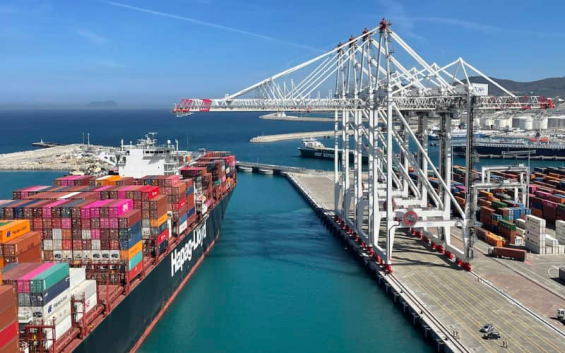In its war against Morocco, Algeria has opened a new front, in the first days of 2024. Algeria's Professional Association of Banks and Financial Institutions (ABEF) has decided to prohibit Algerian banks from providing financial services to any businesses or individuals involved in the transport of goods that transit through Moroccan ports. Another significant escalation in the ongoing diplomatic and economic dispute between Algeria and Morocco.
ABEF has even urged Algerian companies to take steps to ensure that their goods are not transported through Moroccan ports, reads a document signed by the head of the ABEF on January 10.
The order was issued in conjunction with the entry into force of the new CO2 emissions trading system for ships in the European Union on January 1, 2024. In 2024, 40% of these emissions are subject to taxation. In 2026, this will increase to 100%.

The decision by the Algerian Professional Association of Banks and Financial Institutions is likely to add to the financial burden on major international cargo carriers, particularly those transporting goods from South America to Algeria. The decision is intended to discourage these carriers from turning to Morocco to avoid the new carbon tax imposed by the European Union. This would involve transshipping goods purchased by Algeria through Moroccan ports.
A measure that benefits Spanish ports
Algeria's decision to ban transshipment of goods through Moroccan ports is likely to benefit Spanish ports because it will increase the amount of goods that are shipped directly to Algeria from Europe. However, the decision could also hurt Algerian consumers because it will increase the cost of goods, even for products that are not imported from the EU.
For the record, the president of the Algeciras Port Authority, Gerardo Landaluce, warned of «significant losses in the competitiveness of European ports» with the entry into force of the carbon tax. He told media on January 2, that the Tangier Med port will be the major beneficiary of the new CO2 emissions taxation regime, emphasizing on the contrary that Algerian ports do not represent a threat to Spanish and European ports.
The decision of the Professional Association of Banks and Financial Institutions is in line with the instructions given by the Algerian president. For the record, Abdelmadjid Tebboune ordered, in May 2021, the «immediate termination» of contracts with Moroccan companies. He also ordered the Ministry of Finance to stop dividend transfer operations linked to these contracts to Moroccan operators «close to lobbying enemies of Algeria».
Tebboune then invited Algerian companies to demonstrate «responsibility and circumspection in their relations with foreign partners, ensuring in all circumstances the preservation of the superior interests of the State».





 chargement...
chargement...













